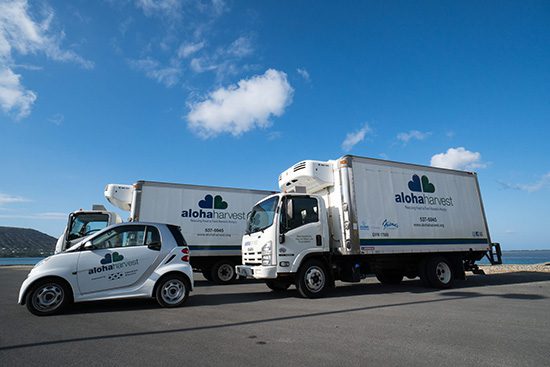
Hawai‘i ushered in a hike in the minimum wage this year, bringing it to $8.50 an hour. The increase will be followed by additional raises in 2017 and 2018 to a maximum of $10.10 an hour.
The bill, which was signed by former Governor Neil Abercrombie on May 23, 2014, was the first time Hawai‘i’s minimum wage was raised from $7.25 back in 2007. In a USA Today article, Abercrombie said he wished the increase had come sooner, noting that “minimum wage is not a survival wage, certainly in Hawai‘i.”
In the same article, former state Sen. Clayton Hee (D, Kahuku-Kāne‘ohe) said that he hoped that the hike would be better for Hawai‘i but that lawmakers had to reach a compromise. Supporters of the bill said that the new wage was beneficial for working families because the cost of living is high in the state.
Many minimum wage workers are now anticipating their first paycheck of the new pay period. Hawai‘i Pacific University student Taylor Pinier, 21, is a Las Vegas native who rents a Kailua home with two other classmates. She said she often struggles to balance rent with everyday essentials.
“It’s strange when you come from Vegas to Hawai‘i and find yourself struggling when in the same situation back home, I’d be perfectly okay. Sometimes, I have to cut down on things I want to do like go out with friends or spend days working when I’d like to study for school and exams. I’m hoping I’ll have an easier time making ends meet with the higher pay this year.”
Hawai‘i is among the first few states, along with Maryland and Connecticut, to boost the minimum wage to $10.10 in 2018, bringing it in line with President Obama’s standard for the country.
Hawai‘i’s minimum wage also applies to tipped employees. Tipped employees are often paid lower wages because of the increased income from their tips.
Kelly Sasser, 32, a server at Kincaid’s, said her paychecks sometimes amount to a couple of dollars to even 5 cents. “I’m so used to disregarding my paychecks as a non-factor compared to the tips that I walk home with after my shift,” Sasser said.
Under the new law, employees who receive less than $7 an hour from their tips (not including their wages) have to be paid the $8.50 an hour minimum wage. Employees whose total pay including tips is at least $7 more than the minimum wage (in other words $15.50 or more) can be paid 75 cents below minimum wage (in other words $7.75 an hour) because of a 75 cents “tip credit.” Last year, the tip credit was 50 cents.
Sasser said that she thinks the changes will have the most impact during times when restaurants have slow business and tips aren’t as big of an issue. “It’s nice to know that on those kinds of days, myself and other people out there can still walk away with a little bit of money.”
“I’m really excited for the new changes to the minimum wage,” said Michael Adams, 28, a server at Big City Diner Kailua for seven years. “It’ll be nice to see my paychecks actually amounting to something while not having to solely rely on tips for a majority of the income I make.”
While the brunt of the upgrade is still on its way over the next few years, the wage increase will surge into Hawai‘i residents’ paychecks and give them more breathing room during difficult times and a few more dollars to indulge in paradise.
by Sean Romuar, Special to Ka ‘Ohana





